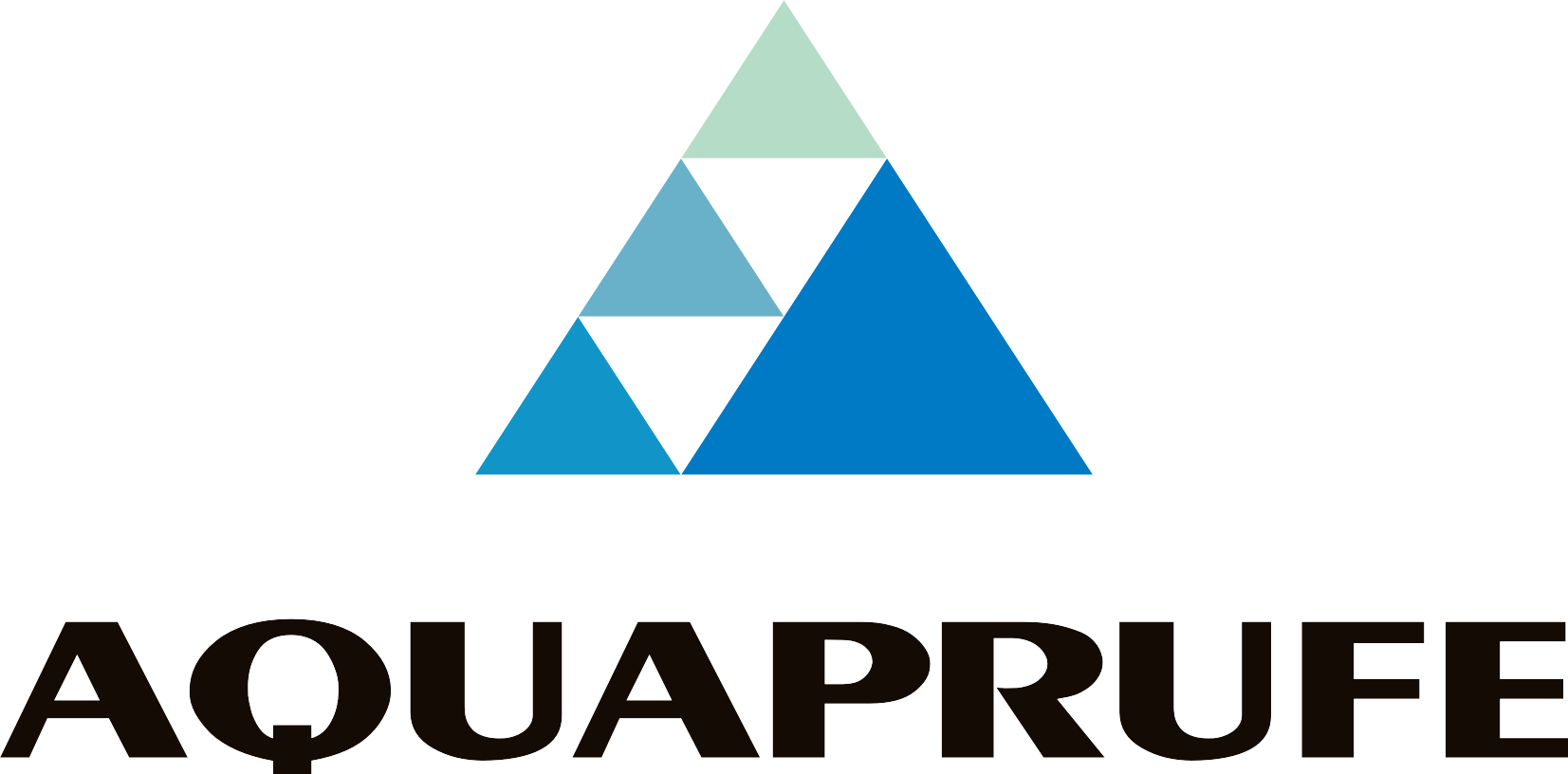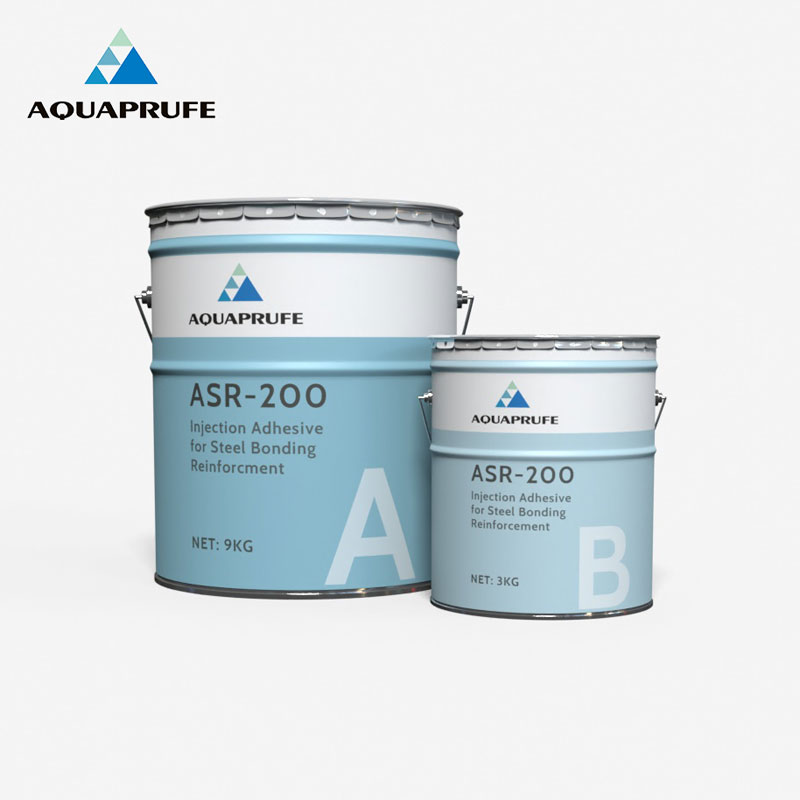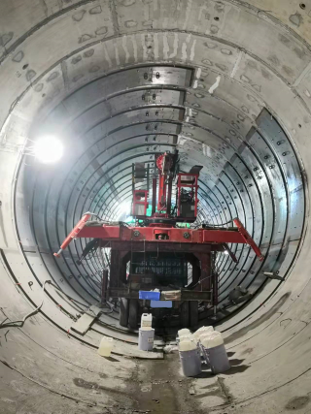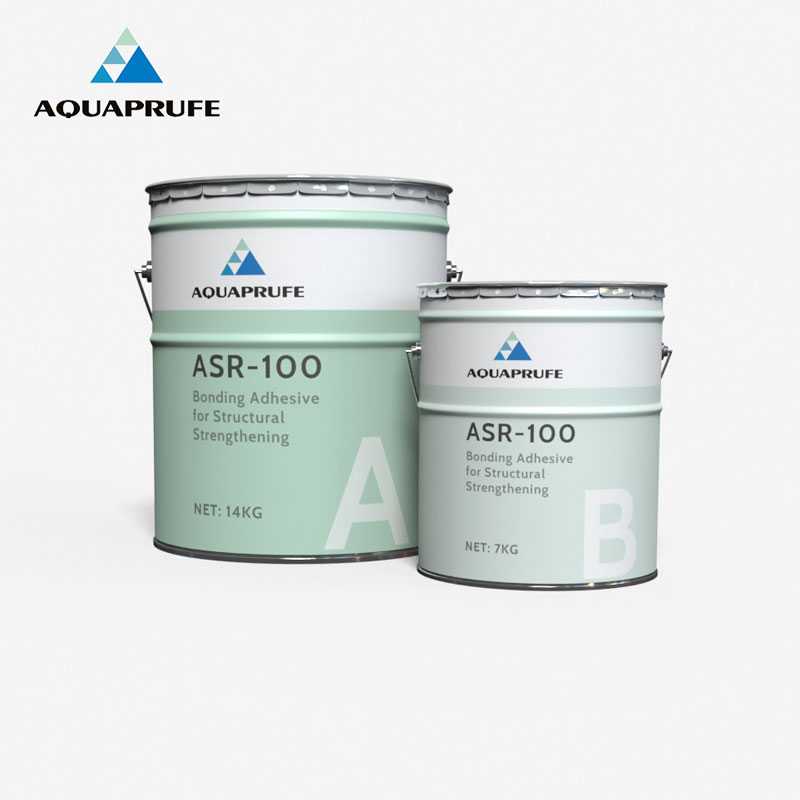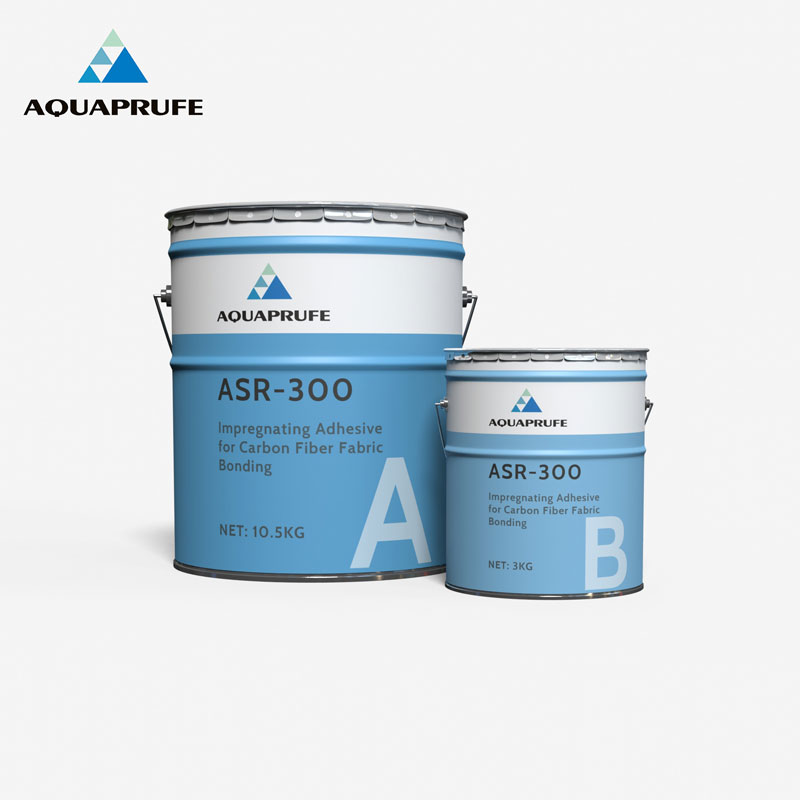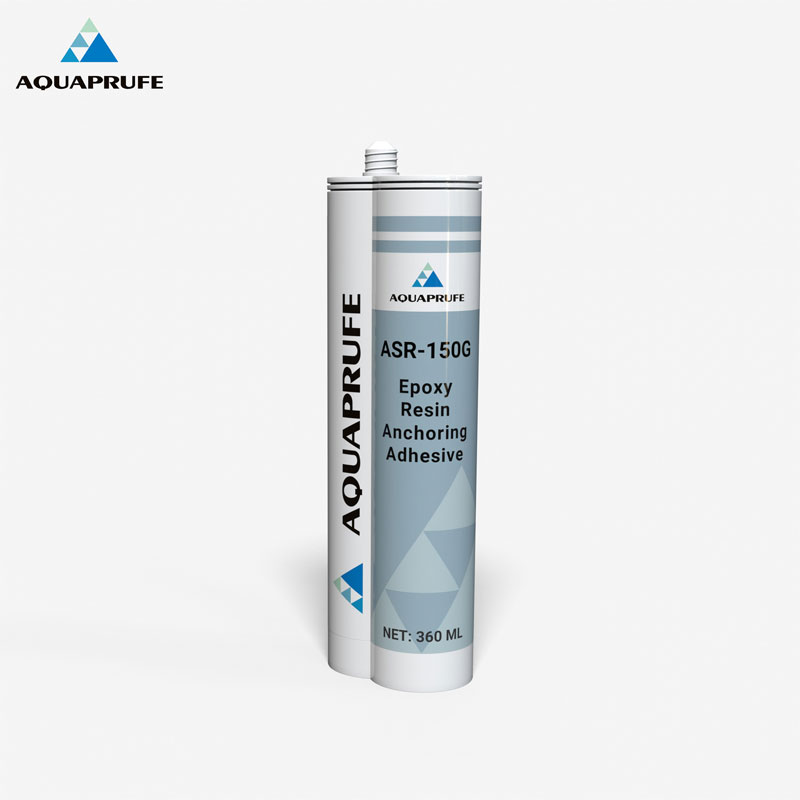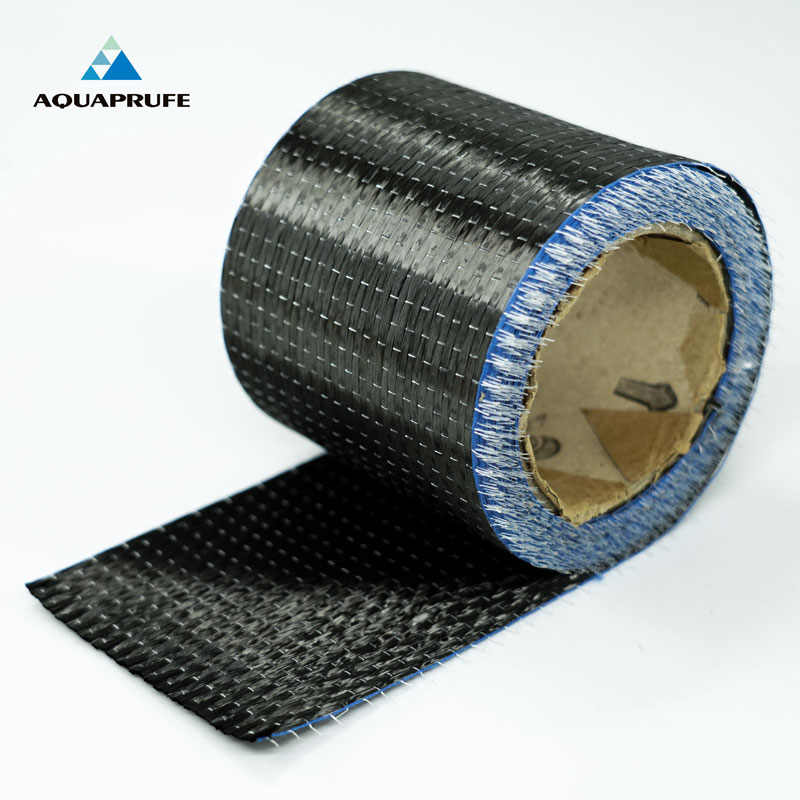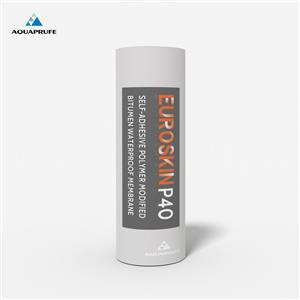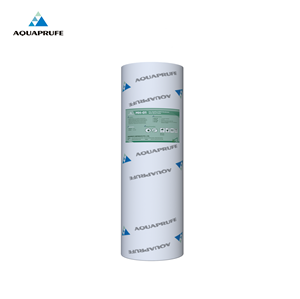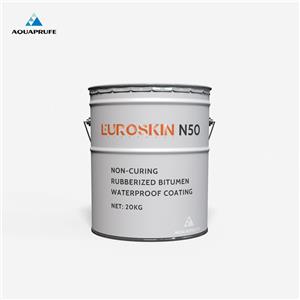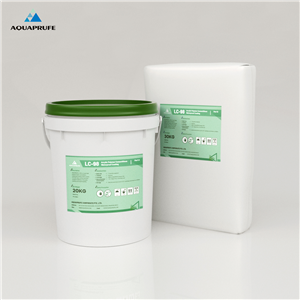Injection Adhesive for Steel Bonding

ASR-200 Injection Adhesive is a solvent-free, two-component, low-viscosity modified epoxy resin adhesive. It is widely used for structural strengthening realized by steel-to-concrete bonding. ASR-200 can also repair cracks in concrete, grout base plates, ground bolts and holes.
ASR-200 infiltrates well into concrete and has great strength performances. It is highly durable and resistant to environmental effects, stress, acid and alkali.
Uses
Reinforcement of large-area steel blocks or injection bonded steel whose thickness is ≥5mm outside the concrete components, such as bridges
Reinforcement of wet-encased steel concrete structure
Grouting and repair of concrete internal defects (honeycombs, holes)
Perfuse, glue and construct the prefabricated component assembly gaps, steel-concrete assembly gaps, and wide concrete cracks (1-5mm)
Secondary grouting and cable hole grouting of anchor bolts and equipment bottom plate
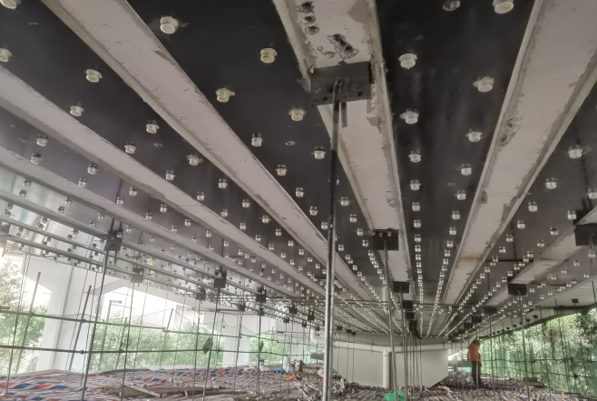
Advantages
Two components and solvent-free
High permeability into concrete surfaces
High resistance to hygrothermal aging, heat aging, freezing-thawing, long-term stress, and fatigue stress
Good resistance to environmental effects such as acid, alkali, salt spray, and seawater immersion
Easy to apply
Applicable within a wide temperature range
Properties
Appearance | Component A epoxy resin → Colorless | Component B curing agent → Light yellow | A+B → Light yellow |
Mixed ratio | Component A : Component B = 3:1 (by weight) | ||
Operation temperature | Minimum operation temperature: 5℃ | Maximum operation temperature: 65 ℃ | |
Operation Time | + 8 ℃: 120 min | + 20 ℃: 90 min | +35℃: 20 min |
PROPERTY | TEST CONDITION | TEST RESULT |
Adhesion performance | ||
Tensile strength - Mpa | (23±2)℃, (50±5)%RH and a loading speed of 2mm/min | ≥30 |
Elastic modulus under tension - Mpa | ||
| ≥3.2*103 | |
| ≥2.5*103 | |
Elongation - % | ≥1.2 | |
Bending strength – Mpa | ≥45, and not in fracture damage form | |
Compressive strength - MPa | ≥65 | |
Bonding capacity | ||
Steel-to-steel tensile shear strength - MPa | (23±2)℃, (50±5)%RH | ≥15 |
(60±2)℃, 10min | ≥17 | |
(-45±2)℃, 30min | ≥17 | |
Steel-to-steel bonding tensile strength - MPa | (23±2)℃, (50±5)%RH, and a loading speed according to test standard | ≥33 |
Steel-to-steel T impact peeling length - mm | ≤25 | |
Steel-to-C45 concrete positive tensile strength - MPa | ≥2.5, with cohesive failure of concrete | |
Heat distortion temperature - ℃ | 0.45MPa bending stress test after 21d of curing and maintenance | ≥65 |
Nonvolatile content - % | (105±2)℃, (180±5)min | ≥99 |
Resistance to environmental effects | ||
Resistance to hygrothermal aging - % | Steel-to-steel tensile shear strength test at room temperature after 90d of 50℃, 95%RH treatment | ≤12, reduction compared to the result of short-term room temperature treatment |
Resistance to heat aging - % | Steel-to-steel tensile sheer strength test after 30d of (80±2)℃ treatment | ≤5, reduction compared to the result of 10min treatment |
Resistance to freeze-thawing - % | Steel-to-steel tensile shear strength test at room temperature after 50 cycles (8h each) of -25~-35℃ freeze-thawing treatment | ≤5, reduction compared to the result of short-term treatment |
Resistance to stress | ||
Resistance to long-term stress - mm | Creep deformation of steel-to-steel specimen after 210d of 4.0MPa shear stress treatment at (23±2) ℃, (50±5) %RH | ≤0.4, no damage to specimen |
Resistance to fatigue stress | Steel-to-steel tensile shear strength test at room temperature, under the fatigue load of frequency 15Hz, stress ratio 5:1.5, and maximum stress of 4.0MPa | No damage to specimen after 2*106 times of equal-amplitude sine wave fatigue loading treatment |
Resistance to salt mist - % | Steel-to-steel tensile shear strength test after 90d of 5% sodium chloride solution treatment at (35±2)℃, 0.08MPa spraying once every 0.5h, 0.5h each time | ≤5, reduction compared to control group; and no cracks or degumming |
Resistance to seawater immersion (for underwater adhesives only) - % | Steel-to-steel tensile shear strength test after 90d of seawater/artificial seawater treatment at (35±2)℃ | ≤7, reduction compared to control group; and no cracks or degumming |
Resistance to alkaline medium | Steel-to-concrete positive tensile strength test after 60d of Ca(OH)2 saturated solution treatment at (35±2)℃ | No falling, peeling, blistering or cracks, and it is concrete destroy |
Resistance to acidic medium | Steel-to-concrete positive tensile strength test after 30d of 5% H2SO4 solution treatment at (35±2)℃ | No cracks or degumming, and it is concrete failure |
Application Procedures
Base surface treatment - Bolt perforation and planting - Steel plate installation - Edge sealing - ASR-200 mixing - Adhesive injection - Curing test - Anti-corrosion treatment
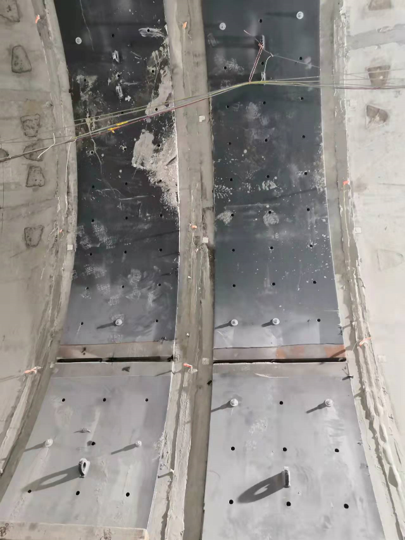
Packaging
Packed in buckets. 12kg per set (Component A: 9kg; Component B: 3kg).
Packaging can be customized according to buyers' requests.
Storage
The effective storage period is 12 months when the package is intact from the date of production.
It shall be sealed and stored in a cool, dry and ventilated place with a storage temperature of 10-40 ℃, without being stacked in the open air or exposed to rain.
It is not classified as flammable, explosive or toxic dangerous goods, and can be transported by ordinary means of transportation. During transportation, the packaging shall not be damaged, exposed to sunlight or rain, and shall not be tilted or placed upside down.
